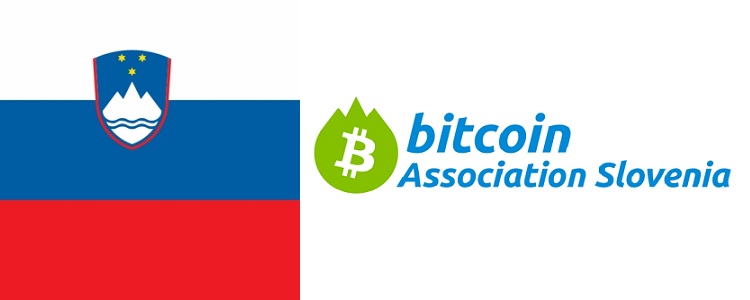Jure Pirc: We Promote Bitcoin And Blockchain For Common Users In Slovenia To Make Government Adopt It
Jure Pirc is the president of Bitcoin Association Slovenia, a non-profit organization engaged in raising people’s awareness on Bitcoin and Blockchain technologies. Slovenia isn’t closed for Bitcoin and Blockchain but the government still treats those innovations suspiciously. The main reason for this is a lack of awareness about these technologies. In the following interview Pirc told Cointelegraph about the problems in the Slovenian crypto market and the ways the Bitcoin Association tries to deal with them.
CT: How exactly does the Bitcoin Association plan to promote Bitcoin in Slovenia?
JP: First of all we want to promote Bitcoin - both as currency and as technology – to the common population of our country and then, further on, to our government. I think this is the best option as Slovenia is a small country with about 2, 000 000 inhabitants.
If, for example, 100, 000 people would have Bitcoin wallets with, at least, a couple of satoshis on them, the government will have no choice but adopt it. Officials will adopt Bitcoin after they see people using it. Then – and only then – they will start communicating with us and raising their own awareness about Bitcoin. For now, we’ve involved about 9 to 10 thousand people into using Bitcoin.
Our government is a closed circuit so you can’t just call them and ask for a meeting on Blockchain. In fact, if you are not close to the decision makers, there’s no way to implement Blockchain technology. Only people can persuade them to look into it seriously.

CT: And what about the banks? Are they friendly to Bitcoin entrepreneurs?
JP: They are definitely not. If you try to open a business account saying you are a Bitcoin company, the banks will probably refuse to provide you with their services. But if you ask for an account without stating you have anything to do with Bitcoin, you’ll probably have no problems with opening it.
In that case you should probably choose a name for your startup that does not point directly to Bitcoin. Otherwise banks may become suspicious. They’ll start checking your account and you’ll finally end up with your account blocked. For example, Slovenian Bitcoin ATM operator Bitnik had its account closed by one of our banks. So they went to another smaller bank and opened an account there as smaller banks seem to be more open for innovation.
Perhaps, that is the reason for startups to register outside of Slovenia. We have 7 Bitcoin startups – Grecom, Krip.to, Reload.bitnik.eu and Bitnik – are registered in Slovenia. The other three – Cashila, Bistamp.net and Gatehub.net – are registered in the UK.
CT: How many Slovenian retailers do actually accept Bitcoin?
JP: Quite a lot actually. We know about 40-70 retailers that accept Bitcoin payments. Moreover, we have almost all industry covered except for grocery shops and gas stations.
CT: Do you organize some educational events for members of non-Bitcoin community? Or do you invite them to your events?
JP: We don’t organize events especially for them. But we hold open meetups. We don’t invite anyone to them but the events are open so anyone can join them. Besides they are publicly announced and have good media covering. So non-Bitcoiners could also visit them if only they wanted.
Previously we held 2 meetups a year. This year we have already had 4 meetups and I plan to hold another one in December, right before Christmas.
Slovenia’s Bitcoin Association does a really great job in raising Bitcoin and Blockchain awareness among people and forcing government to adopt these innovative technologies. People start using Bitcoin while retailers support crypto. And it’s only a matter of time until government officials will start attending Association’s events not just for free coffee and muffins.
